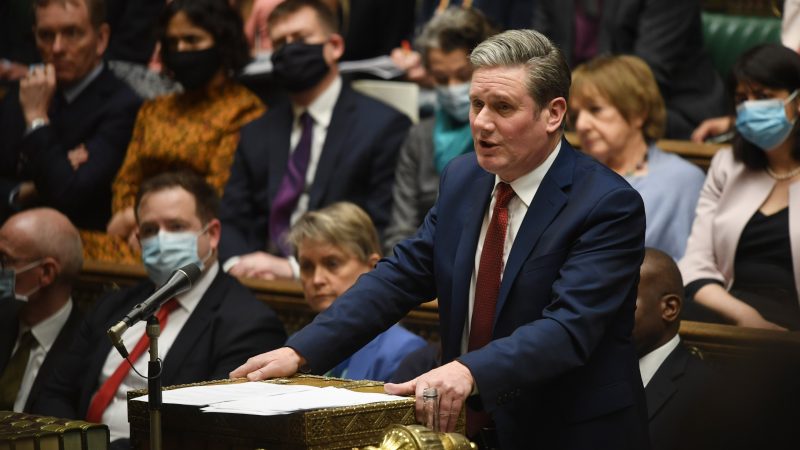
On a day when half a million workers across numerous sectors are thought to be on strike, it was jarring to see Keir Starmer lead on a different topic at Prime Minister’s Questions. Particularly given that this was the first session since the government’s latest crackdown on the right to strike – the minimum service levels bill – completed its passage through the Commons without amendment.
Hundreds of thousands of teachers have joined picket lines this morning, in the first of a series of strikes by the National Education Union (NEU). And, in the heart of Westminster, civil servants in the Public and Commercial Services union (PCS) have also walked out. The Labour leader could have attacked Rishi Sunak on any number of fronts. His avoidance of the subject was a continuation of his lukewarm, middle-of-the-road approach to ongoing industrial action by various unions, suggesting Starmer and his team remain reluctant to take an explicit position in favour of the strikes – likely out of concern that the Prime Minister’s claim that Starmer is “in the pockets of his union paymasters” could begin to cut through.
In another week, leading on the scandal around Nadhim Zahawi’s tax affairs and the belated decision to sack him as Tory Party chair would have been a no brainer. During today’s session, Sunak again argued that he had taken “decisive action” by removing Zahawi following the conclusion of his independent ethics adviser’s investigation. Starmer declared that “anyone picking up a newspaper” in July last year knew that HMRC were investigating Zahawi months before his appointment as party chair. Sunak claimed that “no issues” had been raised with him, absolving himself of any responsibility for his decision to appoint Zahawi to cabinet – an appointment that came after the conclusion of the HMRC investigation, which resulted in Zahawi paying a £5m settlement including a penalty.
Highlighting the wider integrity issues plaguing Sunak’s government, Starmer brought up the bullying allegations against Dominic Raab – in an attempt to tie Sunak in knots over what he knew when following reports this week that No 10 was made aware of concerns about Raab’s behaviour prior to his appointment as deputy Prime Minister. But Sunak’s response put Starmer in an incredibly uncomfortable position, for which the Labour leader had no real response. The Prime Minister argued that if Starmer “is so concerned about behaviour in public life” he ought to be supporting Rosie Duffield, who claimed in a piece last week that the Labour Party has a problem with women following the criticism she received from colleagues during a Commons debate on Scotland’s gender recognition reform bill. “If he can’t be trusted to stand up for the women in his party,” Sunak declared. “He can’t be trusted to stand up for Britain.”
Labour has previously easily landed hits against Sunak about his pledge to restore integrity, but Starmer’s lack of response to the Prime Minister’s comments about Duffield left him exposed – and the Prime Minister capitalised on this. He told MPs that, when he was made aware of formal complaints against Raab, he initiated an investigation, adding: “I take action when these things happen.” Sunak also brought up Starmer’s role in Jeremy Corbyn’s shadow cabinet, accusing the Labour leader of “supporting him for four long years, not challenging”. Positioning himself as morally superior to Starmer in this area was a disingenuous line of attack. But Starmer’s failure to adapt his script to Sunak’s criticisms left him on the back foot.




More from LabourList
Letters to the Editor – week ending 22 February 2026
‘The coastal towns where young people have been left behind by Whitehall’
‘How Labour is modernising transport in Wales with fairness at its heart’